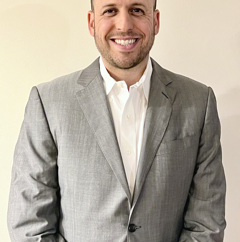
As the leading cause of gastroenteritis, norovirus — colloquially known as the stomach flu — is unpleasant for anyone. But in long-term care facilities, where vulnerable residents live in close quarters, a virus that’s hard to kill but easy to spread is more than a mere nuisance.
Over 60% of norovirus outbreaks occur in long-term care settings, and older adults comprise a majority of America’s 900 annual norovirus deaths. Long-term care residents are four times as likely to die from gastroenteritis. Even those who survive are prone to serious complications, like acute renal failure, arrhythmia, chronic diarrhea and severe enteropathy.
Clearly, then, preventing norovirus outbreaks — defined by the World Health Organization as “the occurrence of cases of disease in excess of what would normally be expected in a defined community” — belongs high on any nursing home’s list of priorities.
While some incidence of norovirus is probably inevitable in this setting, here are three ways you can train your staff to forestall a full-fledged outbreak.
Formulate a response plan beforehand
More than 90% of norovirus infections in healthcare settings are due to person-to-person transmission. Even tiny amounts of the virus in vomit or fecal matter — which can be especially prevalent in nursing homes — can cause illness. Those infected with norovirus often don’t have time to make it to a bathroom.
All of this converges to suggest that it’s critical to act quickly after someone vomits or has diarrhea, especially if they’re known to be infected. The longer contaminated surfaces or persons go unaddressed (i.e., washed or sanitized), the more likely they are to spread the pathogen. Formulate a protocol that staff members learn and memorize before an incident takes place so they can act fast and avoid mistakes.
Neutralize the virus in affected areas thoroughly and safely
So, what should such a plan include? Every facility is unique, but a few non-negotiables stand out.
First, clear the area. Then, ensure that the infected person and any residents in the vicinity wash their hands with soap and water and bathe if appropriate. To prevent a widespread outbreak, personal hygiene is critical, and some residents may need assistance from staff.
Second, provide responding staff members with masks, gloves and other appropriate protective equipment to minimize their chances of touching or ingesting virus particles and becoming infected. When finished, immediately put any disposable items in the trash and remove them from the facility, while thoroughly laundering staff and residents’ clothes.
Third, clean and then disinfect contaminated surfaces. The order is important because cleaners are designed to remove solid/liquid matter and grime, while disinfectants actually kill pathogens. If a surface hasn’t been cleaned first, the disinfectant will be less effective due to physical obstacles the cleaner would have removed.
Emphasize prevention through effective cleaning and disinfection
While no system of prevention is airtight — hence, why I’ve focused so far on how to respond to active norovirus cases — it remains true that the best way to prevent an outbreak is to kill norovirus before it can make residents sick. And for that, it’s critical to give your staff what they need to clean and disinfect effectively.
This is trickier than it might seem. Facilities that (rightly) want to be comprehensive and thorough have to confront the reality that many cleaning chemicals — green and conventional alike — are deeply unhealthy in their own right, often causing infertility, birth defects, cancer, and more. Increasing their use comes with real tradeoffs.
Thankfully, there are alternatives, such as onsite generation of electrolyzed water solutions, which include a highly effective cleaner and disinfectant that are entirely free of harmful chemicals. These solutions have no negative impact on residents’ health, no matter the amount or frequency of their use. And because they can be produced in-house, inventory can easily be scaled up or down as needed.
Empowered with adequate planning, the proper training, and the right prevention tools, nursing home staff can give facilities a newfound freedom from norovirus outbreaks. There’s no time to waste.
Joshua Schwartz is the President and a Co-Founder of Viking Pure Solutions, a sustainable cleaning innovation company that is changing the way facilities clean and disinfect with all-natural, on-demand solutions that are better for people and the environment. With a career spanning diverse industries such as medical real estate, healthcare, finance, and supportive housing, Joshua has made it his mission to identify societal needs and develop innovative solutions that are cost-effective and beneficial to those involved.
The opinions expressed in McKnight’s Long-Term Care News guest submissions are the author’s and are not necessarily those of McKnight’s Long-Term Care News or its editors.
Have a column idea? See our submission guidelines here.




